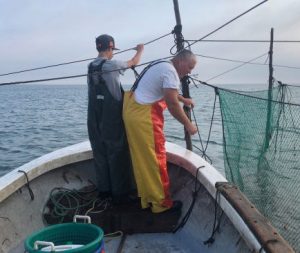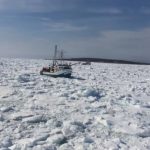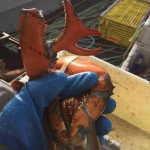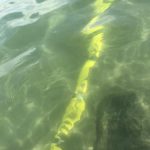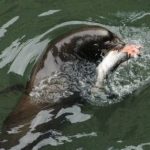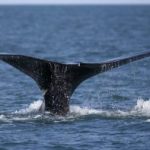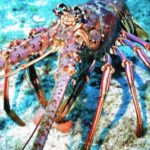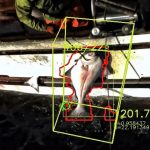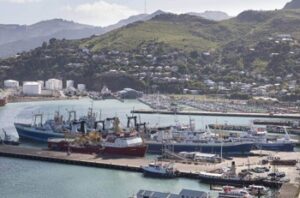Daily Archives: August 2, 2018
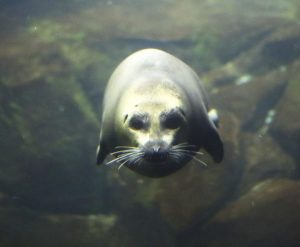
Hunters demand quota to cull thousands of seals and sea lions to save salmon population along B.C.’s coast
The Chief of Haida Gwaii First Nations is calling for a hunting quota on at least 3,000 seals and sea lions in his community and along the west coast of B.C. to help repopulate the critically low salmon stocks. The newly-established Pacific Balance Pinnipeds Society led by president and Chief Roy Jones wants Fisheries and Oceans Canada to establish an “annual harvest quota” on seals and seal lions. “It would be nothing to take probably 3,000 seals out Haida Gwaii, maybe 1,500 to 2,000 sea lions, because the populations are crazy up here,” said the 67-year-old Chief and retired fisherman who grew up watching his father and uncle hunt seals. >click to read<22:43
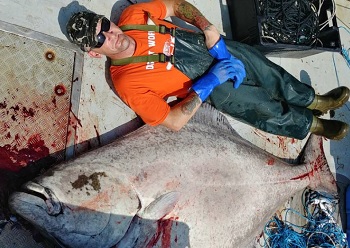
Halibut catches light so far
As of Wednesday, 27.7 per cent of Prince Edward Island’s 2018 halibut quota had been landed. The fishery has been open on Wednesday and Thursday s for the last three weeks. It closes after today and will reopen in three weeks’ time, again running on three consecutive Wednesday and Thursdays.Michel MacDonald, co-chair of the P.E.I. Fishermen’s Association’s Groundfish Advisory committee describes the fishery in the eastern end of the Island as being slow, so far. >click to read<20:30

Why Maine fishermen may be losing their knowledge of the sea
Maine fishermen have a long history of being involved in fisheries management. Communication between harvesters and policymakers has been instrumental in the development of rules and regulations that have helped to sustain the region’s coastal fisheries—from clams to alewives to lobsters. In part, this success results from the deep understanding of the natural environment held by fishermen. “Local ecological knowledge” is a term used to describe the collective perceptions held by a particular group about their environment, resulting from the transmission of cultural knowledge from one generation to the next, combined with regular and persistent interactions between people and the environment. >click to read<19:47
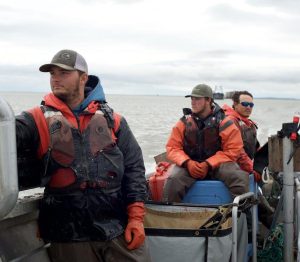
After a long wait, Ugashik fishermen’s patience paid off
Fishermen in Ugashik Bay are used to their sockeye salmon to showing up late in Bristol Bay’s salmon season. This summer’s salmon season was especially trying, but for some, the wait was worth it. Conrad Day and his crew tow a net into the Ugashik River in preparation for the incoming high tide. He explained, “Now we’ll just wait on the switch, cause when the water floods the fish come with it. It’s like a free ride upriver.” Things are quiet out on the water tonight, but a few days ago the river would’ve been full of fellow set netters preparing for the evening sockeye run. >click to read<17:12
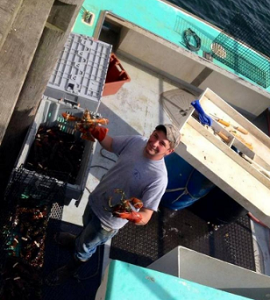
Save an Endangered Species – Support Your Local Lobster Fishermen
Whether we realize it or not, commercial fishermen help us all live better. Fishermen are an integral part of the local economy. Think of all the businesses that rely on fishermen to survive – restaurants, fish markets, grocery stores, seafood processors, truckers that transport lobster, lobster bait, fuel companies for boats and trucks delivering lobster, marine mechanics, boat builders, trap and gear manufactures and more. In addition to choosing local over foreign sourced fish whenever possible, there are other ways to support local lobstermen and their families, all the while strengthening the local economy. This is an American way of life that must be preserved. Here are 5 ways to support local lobstermen right now. By Shelley Wigglesworth >click to read<
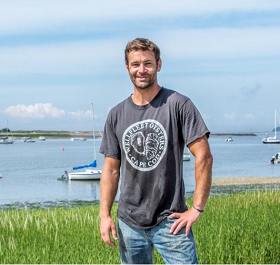
Lucky winner gets 3-acre Wellfleet shellfish grant in ‘unprecedented’ lottery
For the first time in recent memory, a shellfish grant was returned to the town and leased to a new shellfish farmer via lottery on June 6. Shellfish Constable Nancy Civetta said that a grant has not been given back to the town for at least 18 years, making this lottery “unprecedented.” Typically, she explained, retiring shellfishermen pass their grants along to family or friends. The lucky winner, Justin Lynch, 35, is thrilled. “I feel very fortunate,” Lynch said. “It totally caught me off guard.” Lynch brought on his friend, Even Kenny, to work the grant together. The selectmen approved their lease on June 12. >click to read<15:51
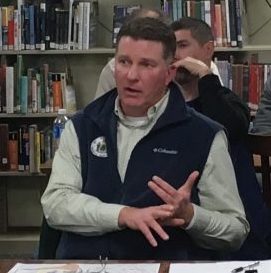
With Trap War Brewing, Maine Department Of Marine Resources Implements Limits For Lobster Trawls
The Maine Department of Marine Resources (DMR) is imposing a new five-trap limit for lobster trawlers in an area around Mt. Desert Rock, about 6 miles off Frenchboro. The limit will go into effect starting in October.,,, “I’m troubled when an industry creates conflicts among themselves, and we couldn’t work it out, and to me it’s one of the problems with the zone system,” said Keliher. “You have more effort in [Zone] C, and that effort needs a place to go, and they are moving into other areas. That creates a trap-density problem, and as soon as you have a trap-density problem, you have social problems. And those sometimes lead to enforcement problems.” >click to read<12:52
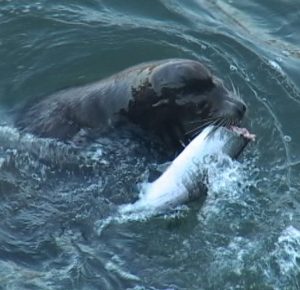
The Endangered Salmon and Fisheries Predation Prevention Act Passed By US Senate Committee
The Endangered Salmon and Fisheries Predation Prevention Act, which helps protect endangered salmon and steelhead populations, passed without objection and will be considered next on the Senate floor. The bipartisan bill would allow wildlife agencies to better protect vulnerable fish populations through science-based management of these invasive, non-ESA listed sea lion populations, while also maintaining a strong Marine Mammal Protection Act that supports research, science-based management, and public process. >click to read<12:33
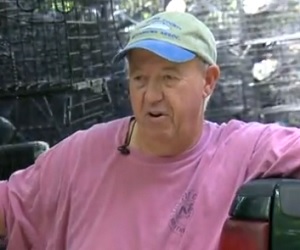
Susquehanna River Debris Has Crabbers Concerned After Heavy Rains
The slew of debris from as far as upstate New York is now hitting our region after officials were forced to open gates on the Conowingo Dam in the Susquehanna River. This is due to the rain that pounded the area last week. For Blair Baltus, he’s bearing the brunt of that debris. “When that flood water came down, it killed most of the crabs that were in the pots.” President of the Baltimore Watermens Association, Baltus says these months are supposed to be the peak of crab catching season. “With these gates opening up it pretty much flushed away everything we had.” Baltus said. >click to read<11:07
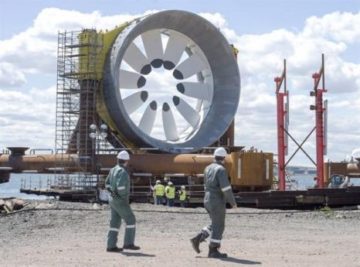
Ownerless Bay of Fundy turbine operating without fish kill monitoring gear
Even before Cape Sharp Tidal, owned by Irish company OpenHydro and Emera, placed it on the floor of the Minas Passage two weeks ago and OpenHydro was placed in receivership days later, the 10-billion tonnes of seawater hauled into the narrowing between Cape Split and Cape Chignecto was already tainted by bad blood. “The opposition isn’t about just whether it kills fish because other things kill fish too — fishermen kill fish,” said Mary McPhee, former facilities operator for the Fundy Ocean Research Centre for Energy, the government-funded tidal test site commonly known as FORCE. “What fishermen want is for the tidal power people to be treated in the same manner as they are. They want the law to be applied equally. So if a fishery has a quota, why can’t tidal power have a quota?” >click to read<08:47






